Jeremie Averous's Blog, page 63
February 3, 2018
How Insurance Companies Are Already Offering Discounts for Automated Driving
In this excellent post ‘Insurance Companies Are Now Offering Discounts if You Let Your Tesla Drive Itself‘, we discover that insurance companies are offering discounts for Tesla owners that use the self-driving feature, both in the UK and in the US.
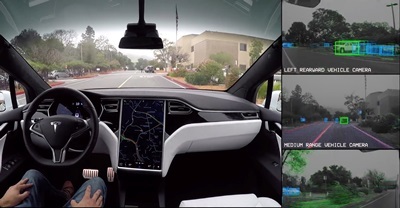 Tesla on autopilot
Tesla on autopilotIt appears that it is not yet due to some visible statistics about less accidents but rather to gain some useful data insight into the benefits of autonomous system driving. Still, it shows how closely insurers do follow this evolution and how they expect it to change (for the better) the accident and incident statistics.
Autonomous driving has the potential to substantially transform the way we drive and the insurance industry at the same time. And it has already started!

February 1, 2018
How We Should Strive to Be of Value
“Strive not to be a success, but rather to be of value.” -Albert Einstein
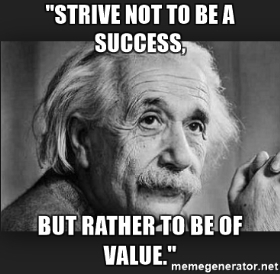 Quite a useful distinction that generates much reflection.
Quite a useful distinction that generates much reflection.
Of course success is a judgement that is often social, while value is more absolute.
In any case, value is what we need to strive for.
Absolutely.

January 30, 2018
How We Are Not Supposed to Understand Everything
Robin Sharma writes: “It’s human nature to wish for an explanation to everything. We create a mental architecture from the time we’re children and then try to fit the events of our lives into these neat intellectual models. Why? So we feel safe and secure and in control.”. But it does not work that way. We need to understand “we’re not supposed to understand everything“.
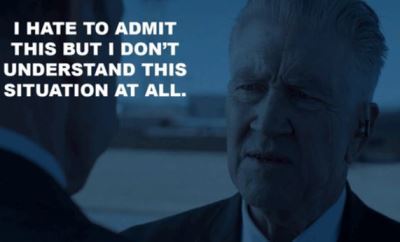 This statement is powerful, because we hate positively being in situations where we don’t understand what happens around us. But it happens much more often than we care to admit or even realize.
This statement is powerful, because we hate positively being in situations where we don’t understand what happens around us. But it happens much more often than we care to admit or even realize.
We need to raise our ability to live with uncertainty and not understanding everything that happens around us. Ancient people invoked gods and demons, we invoke complexity or lack of information, but it is irreducible. It will always be the case. Instead of spending too much time trying to understand what can”t be understood, let’s spend our energy learning to adapt to the unexpected.

January 27, 2018
How To Reach the Peace Beyond Right or Wrong
“Out beyond ideas of wrongdoing and rightdoing, there is a field. I’ll meet you there.” – Rumi.
 I like this quote because of the peacefulness it inspires. It is a respite from the violence of the ideas of right or wrong.
I like this quote because of the peacefulness it inspires. It is a respite from the violence of the ideas of right or wrong.
Right or Wrong, Right or Left, Opposites are the marker of the Industrial Age. In the Collaborative Age with the emergence of complexity, we now understand that the world goes beyond opposites. That richness derives from finding the common ground between what appears to be contradictory at first sight. That contradictions are often only apparent.
Let’s meet on this field beyond opposites.

January 25, 2018
Let’s Launch a ‘Protect My Cognitive Capacity’ Movement!
As mentioned in our previous post ‘How Cognitive Overload Can Influence Our Lives: the Example of Poverty‘, we need to be extra careful when it comes to the usage of our limited cognitive capacity. And this is of course also quite true for well-off people too, in the particular in view of the increasing number of attention grabbing devices that surround us.
 Cognitive capacity management may become the biggest hurdle in the Collaborative Age. We are gifted with marvelous mechanisms that decrease quickly cognitive load when we get used to some activities (such as driving or riding bikes for example), but it seems that modern life conspires to add constantly more devices that waste cognitive capacity.
Cognitive capacity management may become the biggest hurdle in the Collaborative Age. We are gifted with marvelous mechanisms that decrease quickly cognitive load when we get used to some activities (such as driving or riding bikes for example), but it seems that modern life conspires to add constantly more devices that waste cognitive capacity.
It is almost an epidemics of sort. As it is understood that value lies in attention, more and more devices and gadgets compete for attention and thus cognitive capacity. Issues like accidents when driving and texting are direct illustrations of the problem. The world becomes more complex requiring also more difficult decisions and adaptation.
We all need to learn to protect our limited cognitive capacity; learn to relax and give it time to regenerate; and most importantly not multitask that often, which is a very perverse way of reaching our limits without realizing it.
Let’s launch a ‘protect my cognitive capacity’ movement!

January 23, 2018
How Cognitive Overload Can Influence Our Lives: the Example of Poverty
The excellent post ‘Behavioral economics has a plan to fight poverty—and it’s all about redesigning the “cockpit”‘, presents an interesting analysis of poverty. It brings on the surface the issue of cognitive overload.
 The theme of the post is that one reason poor people have difficulties escaping from the poverty trap is that because of their limited means, they need to spend a large amount of cognitive capacity (which is limited for all individuals) solving basic issues such as food and shelter. As a result, they can’t quite spend enough cognitive capability on higher purposes such as, for example, developing a sustainable way to escape poverty.
The theme of the post is that one reason poor people have difficulties escaping from the poverty trap is that because of their limited means, they need to spend a large amount of cognitive capacity (which is limited for all individuals) solving basic issues such as food and shelter. As a result, they can’t quite spend enough cognitive capability on higher purposes such as, for example, developing a sustainable way to escape poverty.
And it is quite true that being well-off basically allows to avoid thinking about certain constraints such as budget when shopping for groceries and where one will sleep tonight, freeing the mind towards higher fields of thinking.
It would also mean that a way to help people escape poverty is to provide support on a temporary basis (a few weeks/months) to free some cognitive capacity to develop a sustainable way to support oneself and family.

January 20, 2018
How Competency Also Requires Emotional Intelligence
In a short and powerful blog ‘The confusion about competence‘, Seth Godin reminds us how competency is not just about grades, certificates but also about the ability to perform emotional labor.
 In some countries such as for example France, India or China, the university one graduates from defines one’s career capability – even many years later. But the selection criteria used on young people do not involve any assessment of the ability to perform emotional labor, to be emotionally intelligent. And this makes so many super-graduated people incompetent in real life. They can only thrive in protected social settings.
In some countries such as for example France, India or China, the university one graduates from defines one’s career capability – even many years later. But the selection criteria used on young people do not involve any assessment of the ability to perform emotional labor, to be emotionally intelligent. And this makes so many super-graduated people incompetent in real life. They can only thrive in protected social settings.
“It doesn’t take a genius to see that competence is no longer about our ability to press certain buttons in a certain sequence. Far more often, competence involves the humanity required to connect with other people, in real time. It requires emotional labor, not merely compliance.”
Well said!

January 18, 2018
How Co-Dependency and Co-Evolution of Companies Is The Way
Being overly dependent from a customer is considered to be an unacceptable risk for any startup or company. In the excellent book ‘Bootstrapping Complexity‘ by Kevin Kelly, based on a comparison with ecosystems, a slightly different view is offered:
 (Dangerous) Symbiosis in action: crocodile teeth brushing!
(Dangerous) Symbiosis in action: crocodile teeth brushing!“Here’s news : half of the living world is codependent ! Business consultants commonly warn their clients against becoming a symbiont company dependent upon a single customer – company , or a single supplier . But many do , and as far as I can tell , live profitable lives , no shorter on average than other companies . The surge of alliance – making in the 1990s among large corporations — particularly among those in the information and network industries — is another facet of an increasing coevolutionary economic world . Rather than eat or compete with a competitor , the two form an alliance — a symbiosis”
While I developed my first company on a stand-alone basis, I find increasingly that partnerships are good ways to develop value for our customers and the world. It can be messy, sometimes disappointing (I hate being taken hostage!) but also rewarding and enriching.
I fully agree that co-evolution is the way. Those entrepreneurs that resist collaboration with other entities and try to do everything themselves will fail. Co-evolution needs to be fostered.

January 16, 2018
How Modern Innovation Needs Proper Maturing and Evolution
The more I delve into startups and innovation, the more I find the central message of the ‘Lean Startup‘ valid: innovative products need to be confronted to reality soonest, and should not be excessively developed in isolation. The Minimum Viable Product is the way. And multiple, fuzzy iterations are required for maturing the product.
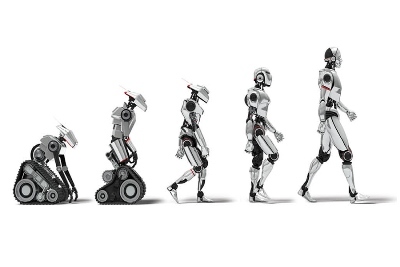 Evolution is the way to achieve success
Evolution is the way to achieve successOne reason is developed in the excellent book ‘Bootstrapping Complexity‘ by Kevin Kelly in a parallel with nature’s evolution. “The rule for machines is counter-intuitive but clear : Complex machines must be made incrementally and often indirectly . Don’t try to make a functioning mechanical system all at once , in one glorious act of assembly . You have to first make a working system that serves as a platform for the system you really want . To make a mechanical mind , you need to make the equivalent of a mechanical thumb — a lateral approach that few appreciate . In assembling complexity , the bounty of increasing returns is won by multiple tries over time — a process anyone would call growth . Ecologies and organisms have always been grown.”
“Creating extremely complex machines , such as robots and software programs of the future , will be like restoring prairies or tropical islands . These intricate constructions will have to be assembled over time because that is the only way to make sure they work from top to bottom . Unripe machinery let out before it is fully grown and fully integrated with diversity will be a common complaint.” We ship no hardware before its time” will not sound funny before too long”
It is amazing that this message must be reiterated so often to entrepreneurs, in particular those coming from engineering colleges where they have been bathed in industrial age scientism. Of course the thing is to enable iteration while keeping costs to a minimum so as to allow success within a reasonable financing requirement. And it will take time and effort. Still it is a must.

January 13, 2018
How Stuff Gets Cheaper and Experience More Expensive as a Historical Trend
In his book ‘The Inevitable: Understanding the 12 Technological Forces That Will Shape Our Future‘, Kevin Kelly reminds us how historically the prices of commodities and stuff have been decreasing, while the price of experiences increase dramatically.
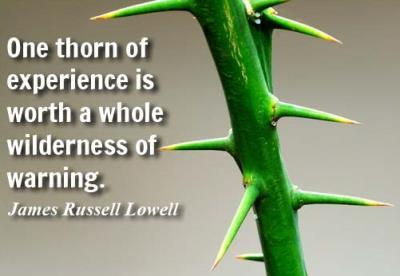 “A major accelerant in this explosion of superabundance — the superabundance that demands constant increases in filtering — is the compounding cheapness of stuff . In general , on average , over time technology tends toward the free . That tends to make things abundant . At first it may be hard to believe that technology wants to be free. According to a 2002 paper published by the International Monetary Fund , “ There has been a downward trend in real commodity prices of about 1 percent per year over the last 140 years . ” For a century and a half prices have been headed toward zero . This is not just about computer chips and high – tech gear.”
“A major accelerant in this explosion of superabundance — the superabundance that demands constant increases in filtering — is the compounding cheapness of stuff . In general , on average , over time technology tends toward the free . That tends to make things abundant . At first it may be hard to believe that technology wants to be free. According to a 2002 paper published by the International Monetary Fund , “ There has been a downward trend in real commodity prices of about 1 percent per year over the last 140 years . ” For a century and a half prices have been headed toward zero . This is not just about computer chips and high – tech gear.”
On the other hand, “The value of experience is rising . Luxury entertainment is increasing 6.5 percent annually . Spending at restaurants and bars increased 9 percent in 2015 alone . The price of the average concert ticket has increased by nearly 400 percent from 1981 to 2012 . Ditto for the price of health care in the United States . It rose 400 percent from 1982 to 2014 . The average U.S . rate for babysitting is $ 15 per hour , twice the minimum wage . In big U.S . cities it is not unusual for parents to spend $ 100 for child care during an evening out” Kevin Kelly could also have quoted for example the cost of education.
And this historical trend can only continue. The value lies in the actual experience. This is why user experience is an essential success factor for most innovations.




